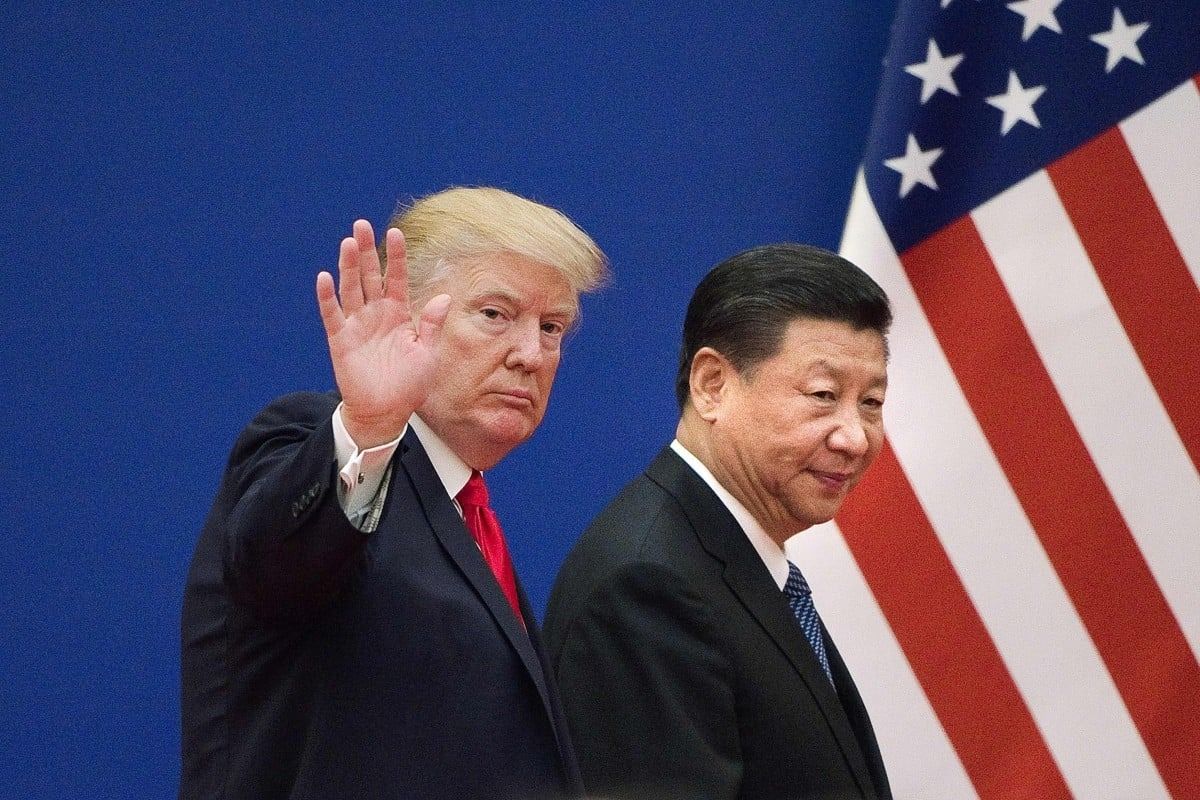
US President Donald Trump might visit China before going to the APEC summit between October 30 and November 1, or he could meet his Chinese counterpart on the sidelines of the APEC event in South Korea, the South China Morning Post reported on Sunday citing multiple sources.
According to SCMP, Trump might visit China before going to the Apec summit between October 30 and November 1, or he could meet his Chinese counterpart on the sidelines of the Apec event.
According to South Korean media reports, Xi plans to attend the event in Gyeongju, but Trump’s participation is yet to be confirmed.
Earlier this month Chinese Foreign Minister Wang Yi and US Secretary of State Marco Rubio had their first face-to-face meeting – a potentially important step towards the two presidents meeting. Meanwhile, in a phone call last month, Xi invited Trump and his wife to visit China, an invitation the US president reciprocated.
Rubio told reporters after meeting Wang that there was a “strong desire on both sides” for a meeting between the two presidents.
Analysts said a meeting in China before the Apec summit or on the sidelines was the most likely scenario, adding that Trump may visit Shanghai or another location rather than Beijing, to distinguish it from his 2017 visit to the Chinese capital.
Diao Daming, an international relations professor at Renmin University in Beijing, said: “Under favourable conditions and an appropriate atmosphere, any form of interaction between the two leaders will aid in the stabilisation and development of US-China relations.”
A meeting between Trump and Xi would be beneficial from China’s point of view, according to Bonnie Glaser, managing director of the German Marshall Fund of the United States, who cited her discussions with Chinese counterparts.
“They maintain that a leaders’ meeting could create greater stability in the relationship,” Glaser said. “It would also present an opportunity for Xi to press Trump to ease some restrictions on technology and reaffirm that the United States doesn’t support Taiwan independence – and perhaps say that the US supports peaceful reunification.”
Beijing views Taiwan as part of its territory that must be reunited with mainland China, by force if necessary. Most countries, including the US, do not recognise it as an independent state, but Washington opposes any attempt to take the island by force and is legally bound to provide arms to help it defend itself.
Sun Chenghao, a fellow at Tsinghua University’s Centre for International Security and Strategy, said a direct leaders’ meeting would be beneficial for breaking the impasse on issues such as fentanyl and tariffs.
“If certain issues can be clarified directly through a summit between the two leaders, I believe we could see relatively swift breakthroughs in specific areas of US-China relations, where leaders could effectively mobilise efforts at the working level.”
Chen Qi, a professor of international relations at Tsinghua, said: “Both sides are indeed working to create a conducive atmosphere for a meeting. Despite some fluctuations since June, there was a mutual effort to establish an improved atmosphere for a potential meeting”
As long as the pair can achieve a certain degree of “mutual cooperation”, particularly on issues that Trump cares about such as trade and export controls, it would foster positive interactions, Chen added.
Diplomatic observers agreed Trump wanted the meeting more than Xi, handing an advantage to Beijing.
“It’s up to China. Trump would be on a plane to Beijing tomorrow if he could,” said Jeremy Chan, a senior analyst with Eurasia Group.
“China is very protocol driven and wants all agreements lined up well in advance while Trump would be happy to hash it all out over a Big Mac.”
However, analysts warned that several factors could jeopardise a meeting, including Taiwan or the actions of the more hawkish elements in Washington.
“The summit will be well telegraphed in advance,” said Chan. “But all it would take would be one slip up along the way to derail the whole thing.”
Diao said that if the US insisted on containing China or “interfering” over Taiwan, it would create obstacles to the leaders’ meeting.
Reports that Taiwanese leader William Lai Ching-te intends to transit in the US ahead of a trip to the island’s Latin American allies have already prompted condemnation from Beijing.
Xin Qiang, deputy director of the Centre for American Studies at Fudan University in Shanghai, said the prospects for a meeting were uncertain and Beijing would closely monitor how the US handles Lai’s transit.
“If significant provocative incidents occur during Lai’s transit, or if Washington extends an overly high-profile reception, it could erode the goodwill and trust that have been painstakingly built up to this point.”
But Chen predicted that Trump would not play the Taiwan card during the summit preparations.
Analysts said the summit was likely to have a visible lead-up if it was on track, citing the meeting between Rubio and Wang as a possible first step and Trump’s decision to allow Nvidia to sell AI chips to China.
They said there may be other signs of progress – such as meetings on fentanyl, US export controls and rare earths – as well as a possible further meeting between Rubio and Wang.
Chan of Eurasia Group said Beijing was likely to keep the sanctions it imposed on Rubio as a senator over his comments on human rights, Hong Kong, Xinjiang and Taiwan, to keep some leverage and avoid the impression it was bowing to Washington.
But if he were to visit China, a “suspension” or some other face-saving arrangement would probably be worked out.
Details for the story are from reports by SCMP and Reuters